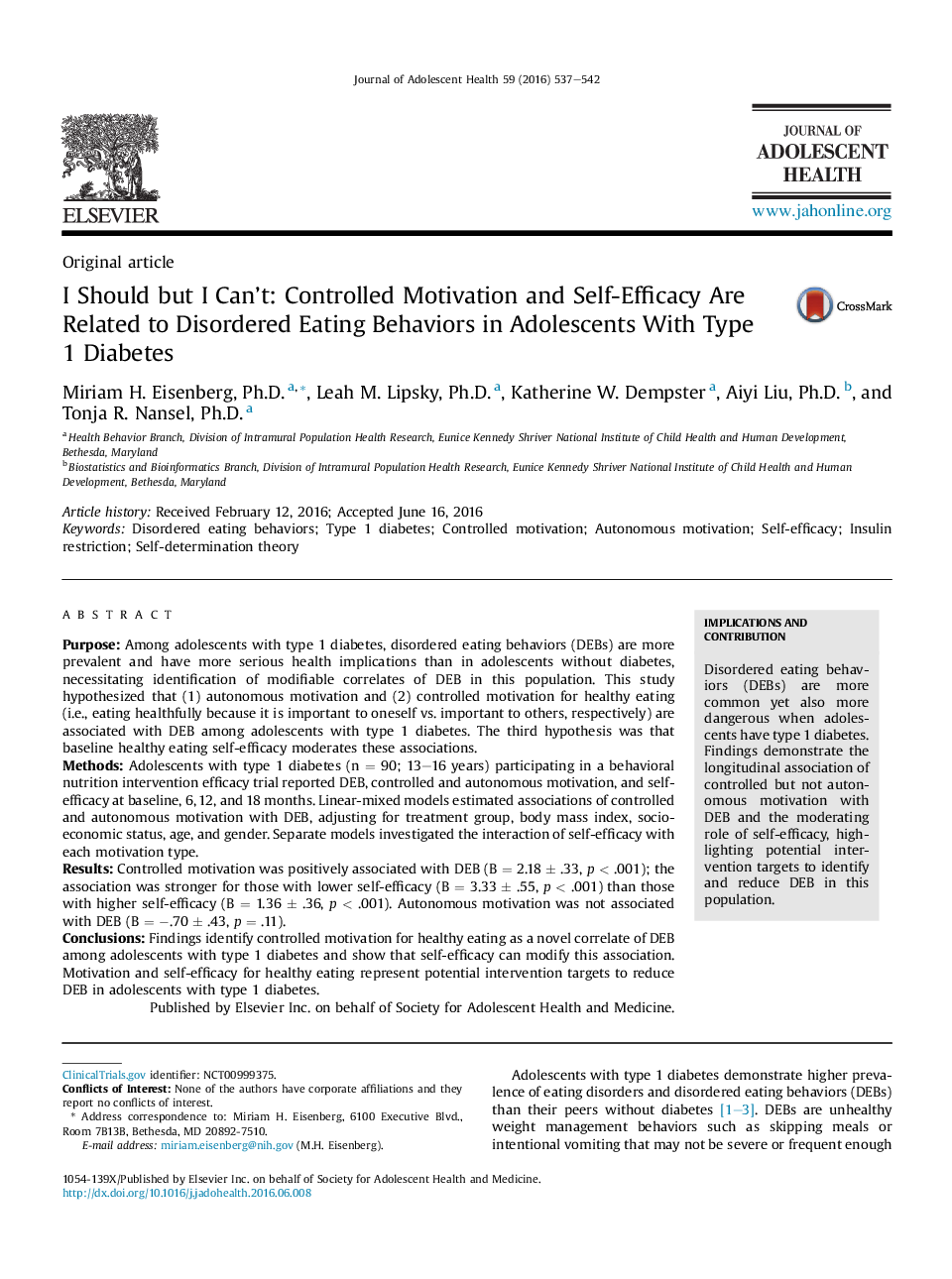| Article ID | Journal | Published Year | Pages | File Type |
|---|---|---|---|---|
| 5121413 | Journal of Adolescent Health | 2016 | 6 Pages |
PurposeAmong adolescents with type 1 diabetes, disordered eating behaviors (DEBs) are more prevalent and have more serious health implications than in adolescents without diabetes, necessitating identification of modifiable correlates of DEB in this population. This study hypothesized that (1) autonomous motivation and (2) controlled motivation for healthy eating (i.e., eating healthfully because it is important to oneself vs. important to others, respectively) are associated with DEB among adolescents with type 1 diabetes. The third hypothesis was that baseline healthy eating self-efficacy moderates these associations.MethodsAdolescents with type 1 diabetes (n = 90; 13-16 years) participating in a behavioral nutrition intervention efficacy trial reported DEB, controlled and autonomous motivation, and self-efficacy at baseline, 6, 12, and 18 months. Linear-mixed models estimated associations of controlled and autonomous motivation with DEB, adjusting for treatment group, body mass index, socioeconomic status, age, and gender. Separate models investigated the interaction of self-efficacy with each motivation type.ResultsControlled motivation was positively associated with DEB (B = 2.18 ± .33, p < .001); the association was stronger for those with lower self-efficacy (B = 3.33 ± .55, p < .001) than those with higher self-efficacy (B = 1.36 ± .36, p < .001). Autonomous motivation was not associated with DEB (B = â.70 ± .43, p = .11).ConclusionsFindings identify controlled motivation for healthy eating as a novel correlate of DEB among adolescents with type 1 diabetes and show that self-efficacy can modify this association. Motivation and self-efficacy for healthy eating represent potential intervention targets to reduce DEB in adolescents with type 1 diabetes.
